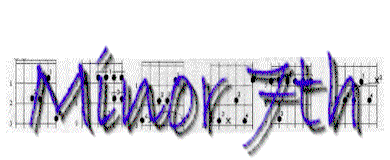

Sean Harkness "Aloft", Windham Hill 01934-11432, 1999
Iíve learned to be confident that Mark Walker, the percussionist, will be found
collaborating with some of the worldís best acoustic nylon-string jazz guitarists. Heís lent
his rhythmic skills to Oregonís "Northwest Passage" and Fareed Haqueís "Opaque". So,
his name in the credits of Sean Harknessí "Aloft" seemed like a stamp of approval to
counterbalance my unfamiarity with Harkness. My initial reaction to "Aloft", though, was
a bit of a wince and the thought to myself under my breath "Oh no, not smooth jazz".
With repeat play, though, Harkness has won me over. The recording does seem targeted
to an audience for commercial appeal in the jazz style of Marc Antoine and the flamenco
of Ottmar Liebert ("Luna Baillando", "Siempre Conmingo"). But "Aloft" has reminded
me that the generic musical paradigms to which we cling are often shortsighted. Smooth
jazz really can be done well, as Harkness proves on the Earl Klugh-like numbers "Paradise
Reef" and "Summer Solstice". And more impressively, Harkness has the versatility to
boldly don the hat of the fingerstylist as on "Coming Home" or of the neo-classical
guitarist as on "Wynkus McGynkus". The latter number is no less than astounding, a less
commercial direction Iíd love to hear more from him.
Jim Goodin "Celtic Journey to the Path", Wood and Wire Music WWM152, 1999
I do profess a preference for the minor mode, and in that respect I find Jim Goodinís
compositions very appealing, very meditative. But, on "Celtic Journey to the Path" itís too much of a good
thing. Each song uses what sounds to be similar progressions of minor chords sliding up
and down the neck, and similar fingerpicking patterns which lull by repetition more than
by creating a mood. Often, especially on "The Story", there is a snapping open string
which is distracting and dominates by volume and overuse. Although itís obvious from
reading Goodinís promotional materials that he emulates Michael Hedges a great deal, he
seems to be more adept in playing or composing in a Celtic style ("Quiet Moments",
Carolanís Welcome") than with a slapstyle which is sometimes faltering ("For Michael",
"Steps Forward", "W-Y-L"). I do hear a spark in Jim Goodinís compositions and playing,
but there seems not to have yet been the proper tinder to turn it to flame.
Travis Nevels "Freestyle Guitar", Independent Records, Inc., 2000
Travis Nevels has self-produced a solo guitar recording full of forward momentum and
pleasing audacity. His music is especially full of the kind of boogie blues riffs that you
might expect out of Billy Gibbons were he to play acoustic guitar exclusively, or perhaps
John Lee Hooker at double-speed crossed with a slapstyle Š la Michael Hedges. His
hammer-ons and pull-offs deftly roll and tumble, recalling Peter Greenís best acoustic
performances as on "Then Play On". Nevels is not so much of a purist that he canít
experiment with delayed and doubled sound textures ("Levitation", "Land of
Enchantment") or rap his knuckles on the soundbox when obviously seized by a feeling to
do so. In fact, Nevels says in his liner notes that he "plays the guitar on his own terms,
doesnít concentrate on finesse" and "caters to a rougher audience". Judging by the
results, Iíd say thatís a formula that works. "Freestyle Guitar" is very good.